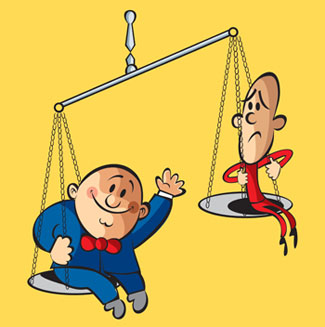12, April, 2015
Sir Frank Packer once said 'Only a mug pays tax.' Multinationals have made an art form of avoiding tax. What are some of the ways they do it?
22, March, 2015
Who wins from grants to first home buyers? The seller who has two buyers with a grant in their pocket bidding against one another.
21, January, 2015
If Bennelong had kept the British out in 1788, we would have a better country today. That is the reason we must keep out asylum seekers in their rickety boats.
15, December, 2014
Responsibility and accountability are different things and get confused when we look at government. Read the difference and how it applies to politics.
4, December, 2014
There are long-term structural issues with Government budgets but nobody seems interested in addressing them. What should we do?
19, October, 2014
A pool of houses is available to first-time home buyers, including those owned by foreign investors. If a home is owned by a foreign investor and not used, it should be put on the market.
3, October, 2014
Why have we never developed bullet trains like those in Japan or Europe?
8, August, 2014
There was a time that Public Private Partnerships were seen as a bonus to government. Has that day past?
23, May, 2014
A satirical look at the forces pulling politics in different directions.











